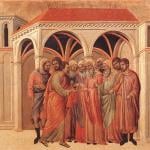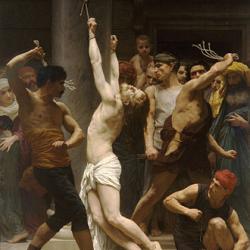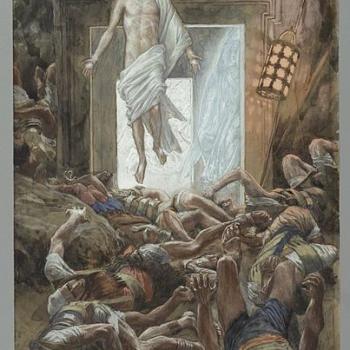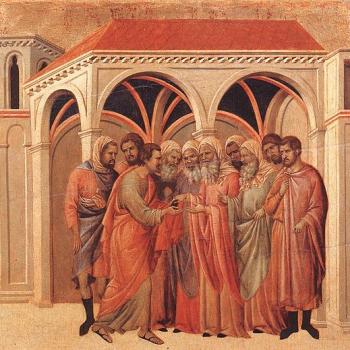Dietrich Bonhoeffer (February 4, 1906 – April 9, 1945) was a German Lutheran pastor, theologian, participant in the German resistance movement against Nazism and founding member of the Confessing Church. 80 years ago he was executed in Flossenbürg concentration camp by hanging at dawn on April 9, 1945, (source Wikipedia) On the anniversary of his death here are some of his thoughts on the Christian life that is perfect for Lent or anytime of the year.

Time is the most precious gift in our possession, for it is the most irrevocable. This is what makes it so disturbing to look back upon the time which we have lost. Time lost is time when we have not lived a full human life, time unenriched by experience, creative endeavor, enjoyment, and suffering. Time lost is time not filled, time left empty.
-
- As quoted in LIFE magazine (22 April 1957), p. 152; also in Letters and Papers from Prison (1967), p. 47

“Cheap grace is the preaching of forgiveness without requiring repentance, baptism without church discipline, Communion without confession, absolution without personal confession. Cheap grace is grace without discipleship, grace without the cross, grace without Jesus Christ, living and incarnate.
Costly grace is the treasure hidden in the field; for the sake of it a man will go and sell all that he has. It is the pearl of great price to buy which the merchant will sell all his goods. It is the kingly rule of Christ, for whose sake a man will pluck out the eye which causes him to stumble; it is the call of Jesus Christ at which the disciple leaves his nets and follows him.
Costly grace is the gospel which must be sought again and again, the gift which must be asked for, the door at which a man must knock.
Such grace is costly because it calls us to follow, and it is grace because it calls us to follow Jesus Christ. It is costly because it costs a man his life, and it is grace because it gives a man the only true life. It is costly because it condemns sin, and grace because it justifies the sinner. Above all, it is costly because it cost God the life of his Son: “ye were bought at a price,” and what has cost God much cannot be cheap for us. Above all, it is grace because God did not reckon his Son too dear a price to pay for our life, but delivered him up for us. Costly grace is the Incarnation of God.”
― The Cost of Discipleship
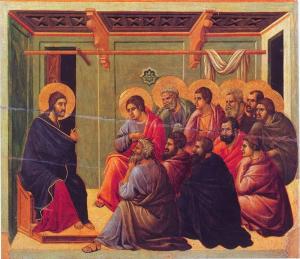
Jesus Christ has to suffer and be rejected. … Suffering and being rejected are not the same. Even in his suffering Jesus could have been the celebrated Christ. Indeed, the entire compassion and admiration of the world could focus on the suffering. Looked upon as something tragic, the suffering could in itself convey its own value, its own honor and dignity. But Jesus is the Christ who was rejected in his suffering. Rejection removed all dignity and honor from his suffering. It had to be dishonorable suffering. Suffering and rejection express in summary form the cross of Jesus. Death on the cross means to suffer and to die as one rejected and cast out. It was by divine necessity that Jesus had to suffer and be rejected.
Any attempt to hinder what is necessary is satanic. Even, or especially, if such an attempt comes from the circle of disciples, because it intends to prevent Christ from being Christ. The fact that it is Peter, the rock of the church, who makes himself guilty doing this just after he has confessed Jesus to be the Christ and has been commissioned by Christ, shows that from its very beginning the church has taken offense at the suffering of Christ. It does not want that kind of Lord, and as Christ’s church it does not want to be forced to accept the law of suffering from its Lord.
-Discipleship and the Cross As translated by Barbara Green and Reihhard Krauss (2001). p. 84

God honors some with great suffering and grants them the grace of martyrdom, while other are not tempted beyond their strength. But in every case it is one cross. It is laid on every Christian. The first Christ-suffering that everyone has to experience is the call which summons us away from our attachments to this world. It is the death of the old self in the encounter with Jesus Christ. Those who enter into discipleship enter into Jesus’ death.The Cross is not the terrible end of a pious happy life. Instead, it stands at the beginning of community with Jesus Christ. Whenever Christ calls us, his call leads us to death.
Discipleship and the Cross As translated by Barbara Green and Reihhard Krauss (2001). p. 87

The only way to overcome evil is to let it run itself to a stand-still because it does not find the resistance it is looking for. Resistance merely creates further evil and adds fuel to the flames. But when evil meets no opposition and encounters no obstacle but only patient endurance, its sting is drawn, and at last it meets an opponent which is more than its match. Of course this can only happen when the last ounce of resistance is abandoned, and the renunciation of revenge is complete. Then evil cannot find its mark, it can breed no further evil, and is left barren.
Revenge- As translated by R. H. Fuller, with some revision by Irmgard Booth (1959)




